Mother Earth Teaches: The Sacred Nature of Seeds
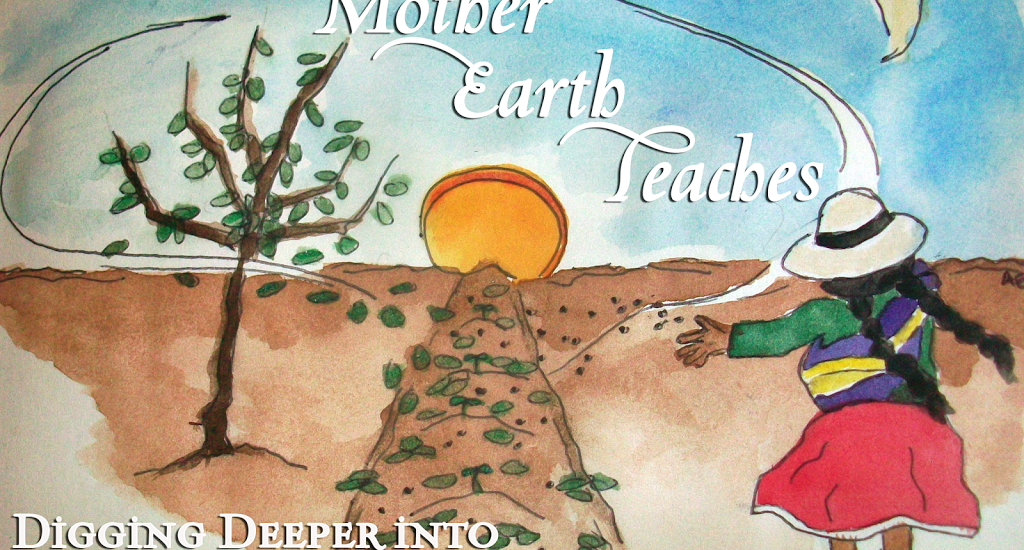
“In the Andean cosmovision, we recognize that we are part of our environment. We are not superior to the Earth, nor owners of her, but we coexist in harmony with her, in relationship with the Pachamama, and not in fear of her.
This relationship, meaning to say, our interconnection and interdependence with the Pachamama, brings us into spiritual connection with her.The source of this spirituality is the seed, la illa, which is the source and origin of all living beings. The seed is the source of life. The seed is both mother and child.”
-Excerpt from “La Semilla, Fuente de Vida,” a document made by the Pastoral de la Madre Tierra, Parroquia Santa Vera Cruz
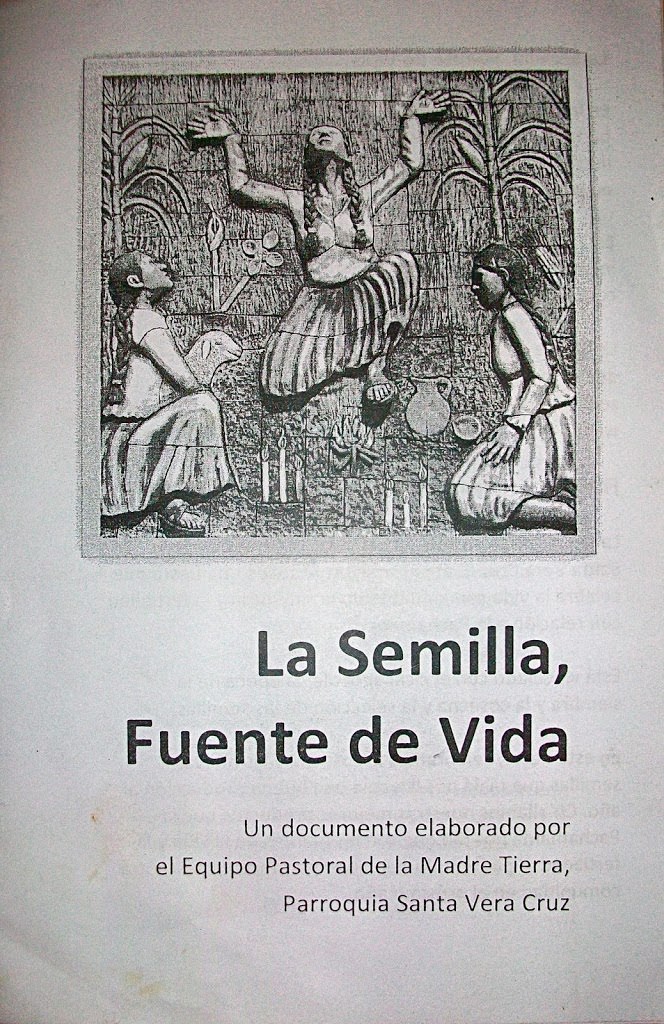 |
| Check out the complete (Spanish) document here and here English translation to come. |
Our work in the parish garden of Santa Vera Cruz might be different than what you would expect.
Yes, we try to farm organically. And yes, we are committed to developing sustainable local food production.
But no, these ways of producing food organically are not new ideas, and Western environmental movements have not introduced them.
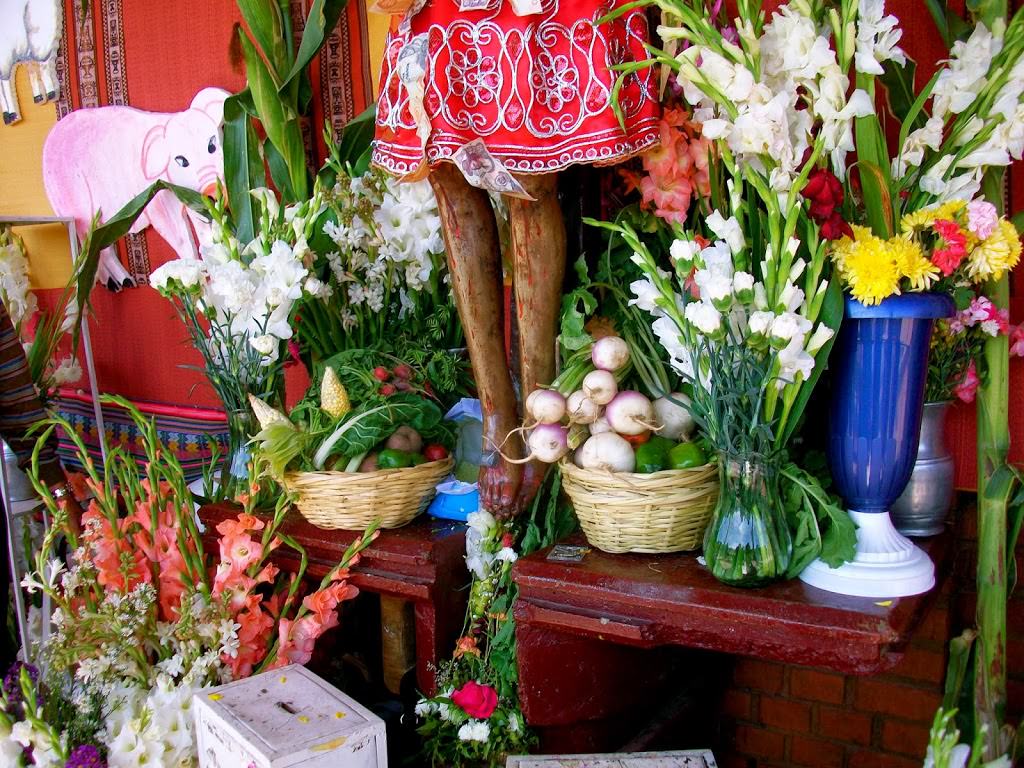 |
| The garden team’s offering at the feet of the cross during the largest parish festival of the year. The offering included the best vegetables produced in the garden. |
In fact, these are ancient principles native to the Andes that have been buried under centuries of colonization; a colonization, which continues today through the domination of multinational corporations like Monsanto who works to homogenize seeds worldwide, effectively criminalizing the preservation of locally produced seeds.
Our work in the parish garden is to reclaim those ancient principles and practices in collaboration with local communities who have, thankfully, preserved some of their original wisdom. Located in the southern zone of Cochabamba, the parish of Santa Vera Cruz primarily serves a population that has migrated from the campo to the city.
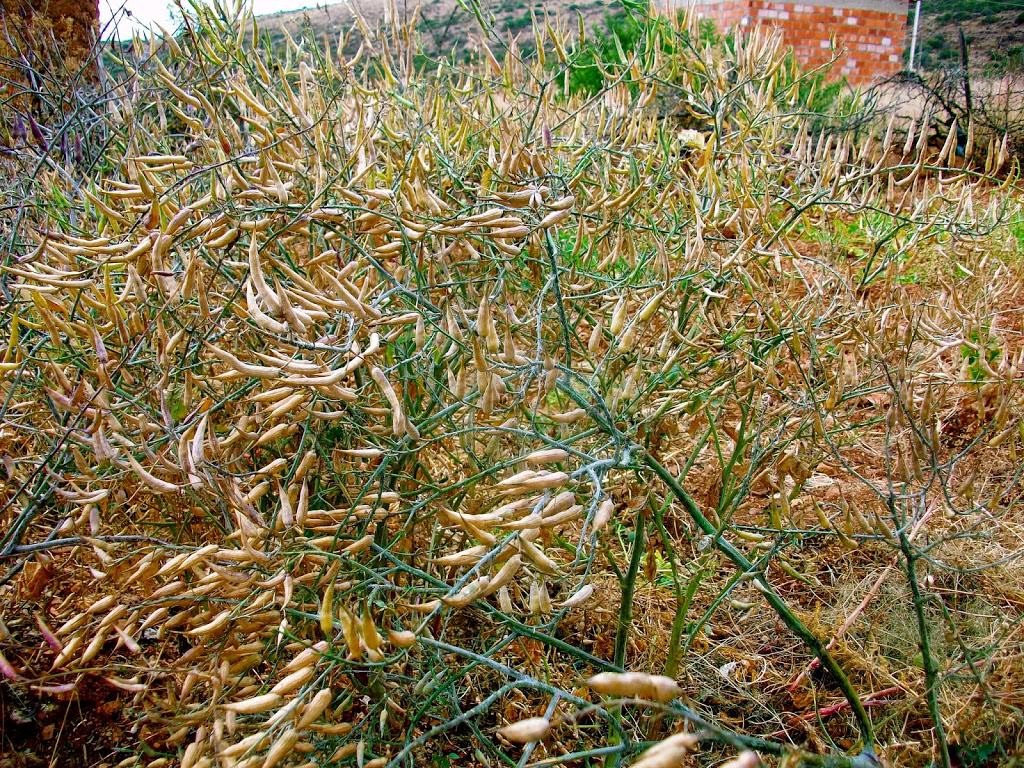 |
| Radish seeds, ready to harvest in Santa Rosa |
The parish has a history of fostering the coexistence of both Andean and Catholic spirituality. And it recently named our garden team the “Pastoral de la Madre Tierra,” or the “Mother Earth Pastoral Team.”
Naming our work in the garden as pastoral is a huge accomplishment for us. Because it recognizes what we already knew, that shared work in a garden is a spiritual experience.
In the parish garden, we talk while we weed, we laugh while we plant and we share silence as we water. We share our lives together in these gardens, our history, our present, our joys and suffering.
And in sharing with these people in the garden, we are invited into their traditions and available to their wisdom.
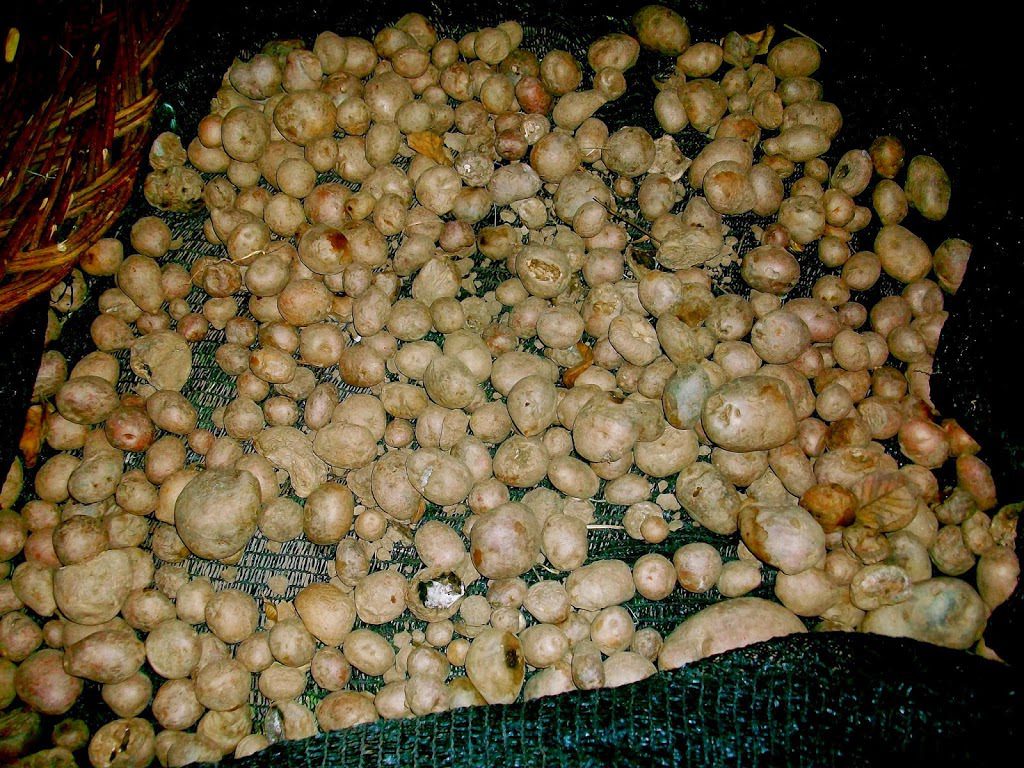 |
| Potato seeds, saved in the parish garden |
In sharing together, we learn from one other’s spirituality.
In learning about the Andean cosmovision, I have come to know the mountains as family, the sun and moon as brother and sister (sounds like our brother Francis, doesn’t it?).
I have been invited to transform my way of relating to animals, with mutuality instead of superiority. I have been challenged to know that the natural order of our environment is not human centric, but holistic, wholly interdependent.
And I have been taught to know seeds as both mother and child, the source of all life, sacred.
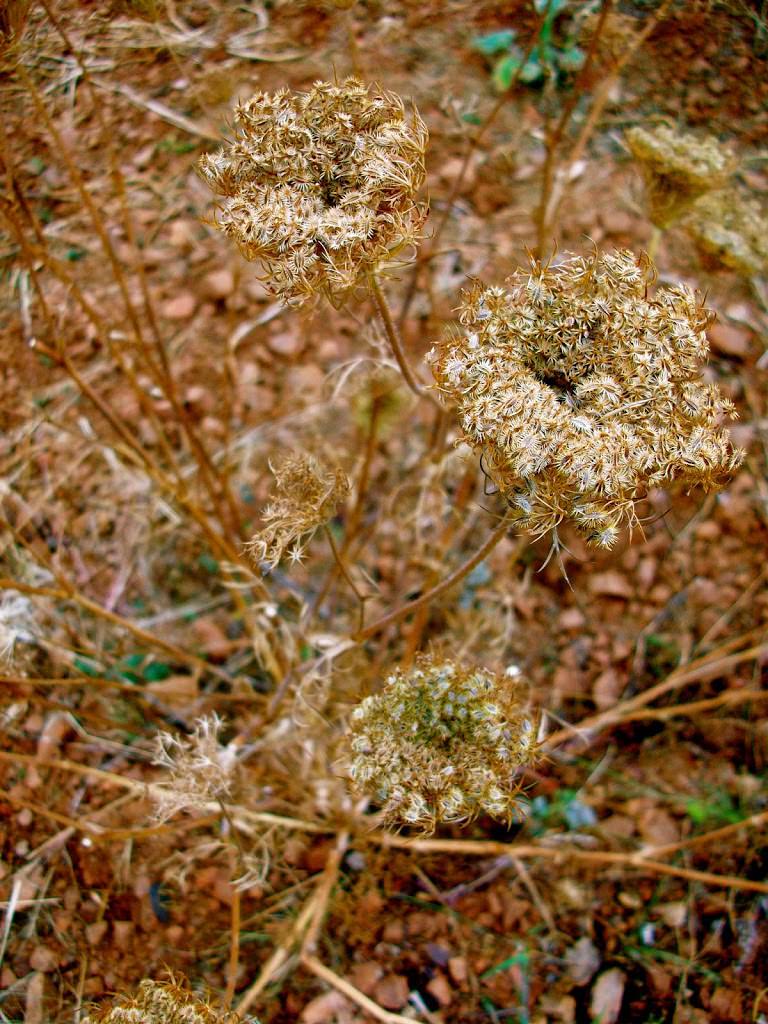 |
| Carrot seeds, ready to harvest in Santa Rosa |
Can you just take a moment to let that sink in?
If those tiny little seeds that we plant in the ground are as sacred as the seeds we plant in the womb, what are we doing treating them with chemicals, homogenizing them, and commoditizing them?
Rooted in the sacred nature of seeds, our work in the parish garden strives to decolonize our very selves, our way of relating to the Earth and one another.
We are learning to save seeds like my Bolivian boss’ grandmother did, honoring her wisdom, instead of buying them exclusively from an unreliable market.
We are learning to value seed diversity as essential to our survival, rejecting genetically modified seeds and the use of pesticides sold to us by agricultural industry concerned more with profits than sustainability.
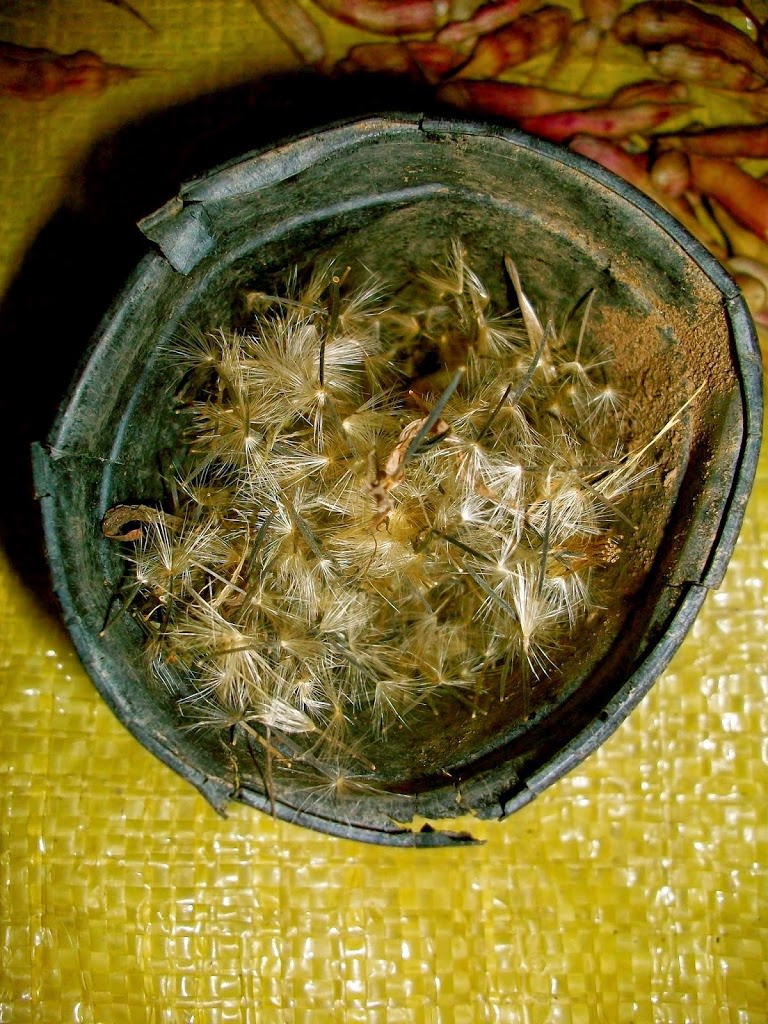 |
| Killkiña seeds, a Bolivian herb, saved in the parish garden |
We are waking up to the fact that the defense of that seed diversity is a social justice issue, critical to our faith as Christians who are committed to protecting life and caring for creation.
And we are opening ourselves up to new learning everyday, collaborating with local communities to unlearn our harmful ways of working the land in order to relearn what we have deeply always known, that we belong to the Earth.
For more information about the importance of defending our seeds, I recommend this fantastic article from the ViaCampesina.
Tagged in:
